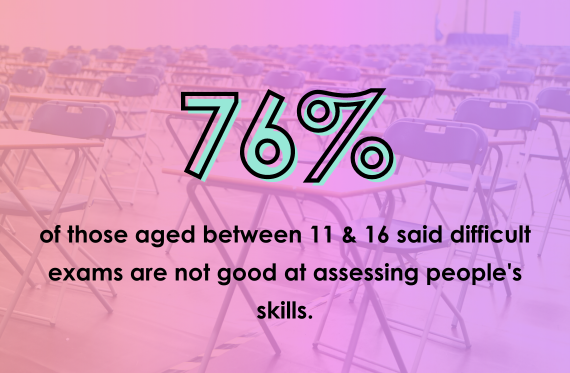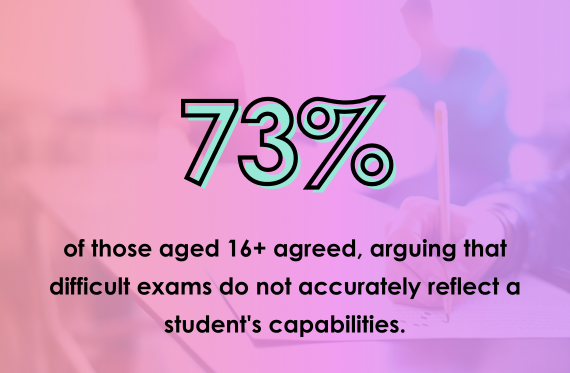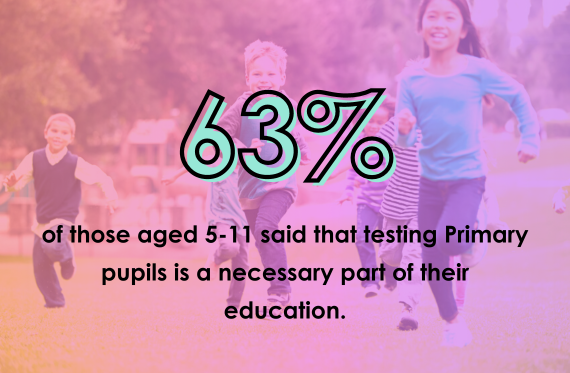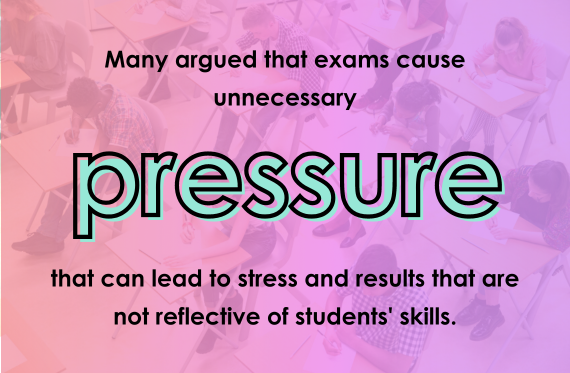Total votes
5-11 votes
11-16+ votes
Some people love them, some hate them. The intensity and anxiety of the single shot at success, the be all and end all of a period of education are a firm part of the modern education environment that uses exams to assess skills and knowledge.
But how hard should they be? After Covid there was more scaffolding at GCSEs and A Levels, but now that is coming down there appears to be a move to make exams a true examination of pupils. As well as a correction from the appearance of inflated grades.
For this VoteTopic, voters considered all things exams, following the outcry over the difficulty of recent Year 6 SATs tests in England. They discussed the benefits and drawbacks of exams before reflecting on potential alternatives.
Secondary and College voters all considered: “Are difficult exams good for assessing people's skills?” while Primary 5-11 voters discussed: “Should Primary school pupils take tests?”

"We should take tests because in Secondary school, we will be doing more tests so we need to build up our resilience and concentration."

"Different people learn and show intelligence in different ways other than by writing them down."

"Exams should be scrapped. No-one should be judged for their ability to pass exams or not. Having to complete a paper under a time limit makes the whole process worse and isn't reflective of how real life works."




Thank you so much to two of our Impact Partners for responding to what the children said.
Karen Wespieser MBE, Chief Operating Officer at Teacher Tapp, a research company specifically aimed at teachers.
and
Jason Elsom, Chief Executive Officer at ParentKind, the membership organisation of PTAs.
“These results from Votes for Schools are enlightening, and confirm views that parents often have too. What we really need is a system of assessment that gauges the skills that young people have and how they’ve grown as people – not just what facts and figures they can remember at a time of high stress. As a parenting charity, we work with parents, qualifications bodies and other stakeholders across the UK to inform changes to these systems, so that we develop an education system that is world-leading and that supports the growth of happy, healthy and high-achieving young people.”
- Jason Elsom, CEO ParentKind